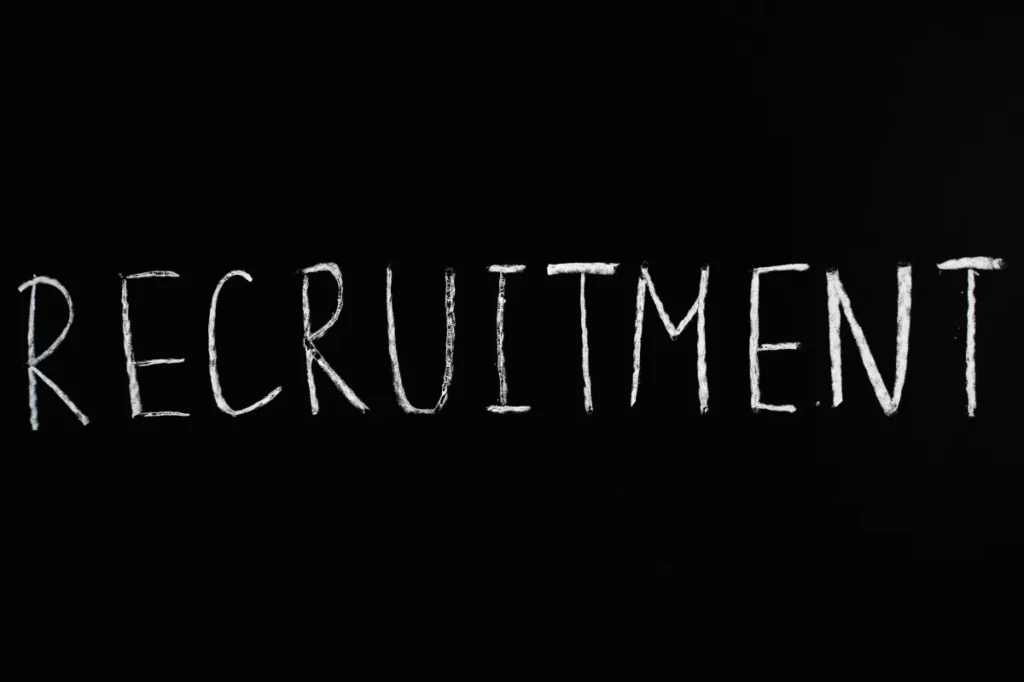Artificial Intelligence (AI) has been making significant strides in various industries, and the realm of Human Resources (HR) is no exception. Employing AI technology to streamline and enhance the hiring process has become an increasingly popular trend. However, before implementing AI solutions, it is crucial to understand its implications fully. This article explores the advantages and disadvantages of using AI in HR, delves into relevant case studies, discusses legal and ethical considerations, and provides insight into the future of AI in hiring.
Understanding AI in HR
Before diving into the benefits and drawbacks of AI in hiring, it is essential to grasp the basics of AI. AI refers to the simulation of intelligent behavior in machines, enabling them to mimic human cognitive abilities. In the context of HR, AI helps automate repetitive tasks, analyze vast amounts of data, and make informed decisions.
What is AI?
AI involves the development of computer systems capable of performing tasks that typically require human intelligence. These tasks include speech recognition, decision-making, problem-solving, and learning. Machine Learning (ML) and Natural Language Processing (NLP) are techniques commonly employed in AI systems to enable learning from data and understanding human language, respectively.
Machine Learning, a subset of AI, is a process by which machines learn from data and improve their performance over time without being explicitly programmed. It enables AI systems to analyze patterns, make predictions, and adapt to changing circumstances. Natural Language Processing, on the other hand, focuses on understanding and interpreting human language. It allows AI systems to comprehend and respond to text or speech inputs, enabling more effective communication with users.
How is AI currently used in HR?
AI applications in HR are diverse, including resume screening, interview scheduling, candidate matching, and employee onboarding. AI-powered algorithms analyze resumes, job descriptions, and qualifications to identify the best-fit candidates. By leveraging ML and NLP techniques, these algorithms can understand the context and nuances of job requirements, ensuring a more accurate and efficient screening process.
Furthermore, AI chatbots and virtual assistants have become increasingly popular in HR. These digital assistants can engage applicants, answer queries, and provide personalized support throughout the hiring process. They can schedule interviews, provide updates on application status, and offer guidance on the company’s culture and values. By automating these tasks, AI chatbots free up HR professionals’ time, allowing them to focus on more strategic and value-added activities.
Another area where AI is making an impact in HR is employee onboarding. AI systems can streamline the onboarding process by automating administrative tasks, such as filling out forms and setting up accounts. They can also provide new employees with personalized onboarding plans, tailored to their role and skillset. By leveraging AI, organizations can ensure a smooth and efficient onboarding experience, setting the stage for a positive employee journey.
Overall, AI is revolutionizing the HR landscape by enhancing efficiency, accuracy, and candidate experience. However, it is crucial to strike the right balance between automation and human touch. While AI can automate repetitive tasks and provide valuable insights, the human element remains essential in building relationships, understanding emotions, and making complex decisions. The successful integration of AI in HR requires a thoughtful approach that combines the best of both worlds.
The Benefits of Using AI in Hiring
Integrating AI into hiring processes presents several advantages that can be advantageous for HR departments.
As technology continues to advance, AI has become an invaluable tool in various industries, including recruitment and hiring. The use of AI in these processes has revolutionized the way organizations find and select candidates, bringing numerous benefits to HR professionals.
Increased Efficiency in Screening Process
AI technology enables the automation of resume screening, saving HR professionals considerable time and effort. With AI algorithms, large volumes of resumes can be quickly analyzed, filtered, and ranked based on specific criteria. This expedites the initial evaluation phase, allowing HR teams to focus on more intricate tasks.
Furthermore, AI-powered screening processes can be customized to match the specific requirements of each job position. By automatically filtering out resumes that do not meet the necessary qualifications, AI ensures that HR professionals only spend time reviewing candidates who are truly suitable for the role. This streamlined approach significantly increases the efficiency of the screening process.
Unbiased Candidate Selection
One of the most significant advantages of AI in hiring is its potential to mitigate unconscious bias. Human decision-making can be influenced by factors such as race, gender, or age, which can lead to discriminatory practices. AI algorithms, on the other hand, base their decisions on objective criteria, minimizing the risk of bias and promoting a fair selection process.
AI algorithms are designed to focus solely on the qualifications and skills of candidates, disregarding any personal characteristics that are unrelated to job performance. This ensures that candidates are evaluated solely based on their abilities and potential, providing equal opportunities for all applicants.
Predictive Analytics for Better Hiring
AI technology has the capability to analyze vast amounts of data and identify patterns or trends that might not be apparent to human recruiters. Through predictive analytics, AI can help predict candidate success, potential turnover rates, and even suggest training programs to enhance employee development. This data-driven approach empowers HR managers to make more informed hiring decisions.
By leveraging AI-powered predictive analytics, HR professionals can gain valuable insights into the future performance of candidates. This allows them to identify individuals who are more likely to succeed in the role and contribute to the organization’s long-term growth. Additionally, AI can provide recommendations for personalized training programs based on an individual’s strengths and weaknesses, ensuring that new hires receive the necessary support to thrive in their roles.
In conclusion, the benefits of using AI in hiring are vast and impactful. From streamlining the screening process to promoting unbiased candidate selection and enabling data-driven decision-making, AI has the potential to revolutionize the way organizations find and hire talent. As technology continues to evolve, it is crucial for HR professionals to embrace AI as a valuable tool in their recruitment strategies.
The Drawbacks of AI in Hiring
While AI offers numerous benefits, it is not without potential drawbacks that must be carefully considered before implementation. In this section, we will explore some of the key concerns surrounding the use of AI in the hiring process.
Potential for Misinterpretation
AI systems are only as effective as the data they are fed. If the input data contains biases or inaccuracies, the AI algorithms can potentially generate flawed results. For example, if historical hiring data used to train an AI model is biased towards a certain demographic, the system may inadvertently perpetuate that bias. It is crucial to ensure the quality and diversity of data to prevent any unintentional perpetuation of bias or discriminatory practices.
Furthermore, the interpretation of candidate information by AI systems may not always be accurate. Contextual nuances, such as sarcasm or humor in resumes or cover letters, can be challenging for AI algorithms to understand. This lack of contextual understanding may lead to misinterpretation of candidates’ qualifications or intentions, potentially resulting in unfair or inaccurate assessments.
Lack of Human Touch in the Process
Hiring involves building connections and assessing interpersonal skills, which can be challenging for AI systems to replicate. While AI can efficiently analyze resumes and identify relevant skills and experiences, it may struggle to gauge a candidate’s cultural fit within an organization or assess their soft skills, such as communication or teamwork abilities.
The absence of human interaction in the initial stages of the hiring process may lead to a less personalized experience for applicants. Candidates might prefer human interaction to address any concerns or seek clarification on certain aspects of the job or company culture. Additionally, the lack of human involvement can make the process feel impersonal and detached, potentially diminishing the overall candidate experience.
Ethical Concerns and Privacy Issues
The use of AI in HR raises ethical questions surrounding data privacy, security, and consent. Gathering and analyzing candidate data may intrude upon privacy rights if not properly regulated. HR departments must establish transparent practices, acquire informed consent, and comply with relevant data protection regulations to ensure ethical deployment of AI technology.
Moreover, the algorithms used in AI systems are often considered black boxes, meaning the decision-making process is not always transparent or explainable. This lack of transparency can lead to concerns about fairness and accountability. Candidates and organizations alike may question the validity and reliability of AI-driven hiring decisions, especially if they cannot understand how the decisions were made.
Additionally, there is a risk of data breaches or misuse of candidate data when implementing AI in hiring processes. HR departments must prioritize data security and establish robust measures to protect sensitive information. Regular audits and assessments should be conducted to ensure compliance with data protection regulations and mitigate potential risks.
In conclusion, while AI has the potential to revolutionize the hiring process, it is crucial to address the drawbacks and challenges associated with its implementation. By carefully considering the potential for misinterpretation, the lack of human touch, and the ethical concerns and privacy issues, organizations can strive to strike a balance between the benefits of AI and the need for fairness, transparency, and human involvement in hiring decisions.
Case Studies of AI in HR
Examining real-life implementations of AI in HR offers valuable insights into the successes and challenges encountered in practice.
Artificial Intelligence (AI) has revolutionized various industries, and the field of Human Resources (HR) is no exception. By harnessing the power of AI, companies have been able to streamline their hiring processes, improve candidate experience, and gain access to valuable data for continuous optimization.
Successful Implementations of AI in Hiring
Companies like Unilever and Nestlé have successfully integrated AI-based recruitment tools, significantly enhancing their hiring processes. These tools utilize advanced algorithms to automate resume screening, allowing HR professionals to focus on evaluating the most qualified candidates. By leveraging AI chatbots for initial candidate interactions, these companies have also improved the efficiency of their recruitment process. Candidates can now receive prompt responses to their queries, enhancing their overall experience.
Moreover, AI-based hiring solutions have provided companies with valuable data insights. By analyzing large volumes of data, these tools can identify patterns and trends, helping HR professionals make more informed decisions. For example, they can identify the most effective sources for talent acquisition or predict which candidates are most likely to succeed in a particular role.
Lessons from Failed AI Hiring Experiments
Despite the potential benefits, there have been instances where AI-based hiring solutions faced criticism and setbacks. For instance, Amazon’s AI recruiting tool faced significant backlash and was ultimately discontinued due to bias concerns. The tool inadvertently penalized resumes containing certain keywords, perpetuating gender bias in the recruitment process. This incident highlights the importance of rigorous testing, continuous monitoring, and human oversight when implementing AI in HR processes.
Organizations must ensure that the algorithms used in AI-based hiring tools are free from biases and are designed to promote diversity and inclusion. This requires ongoing evaluation and refinement to address any potential biases that may emerge. Human intervention and oversight are crucial to ensure fairness and prevent unintended consequences.
Furthermore, it is essential to involve HR professionals throughout the development and implementation of AI solutions. Their expertise and understanding of the organization’s culture and values are invaluable in ensuring that AI systems align with the company’s goals and ethical standards.
Learning from these failures, organizations can refine their approach to AI implementation in HR and take proactive steps to mitigate risks. By leveraging AI responsibly and ethically, companies can harness its potential to revolutionize their HR processes, leading to better hiring outcomes and improved employee experiences.
Legal and Ethical Considerations of AI in HR
As organizations increasingly adopt AI in their HR practices, it is imperative to ensure compliance with legal requirements and maintain ethical standards.
The integration of artificial intelligence (AI) technology in human resources (HR) processes has revolutionized the way organizations manage their workforce. AI, with its ability to analyze vast amounts of data and make predictions, offers valuable insights that can streamline recruitment, improve employee engagement, and enhance decision-making. However, as with any technological advancement, there are legal and ethical considerations that must be taken into account to ensure fairness, transparency, and compliance.
Data Protection and Privacy Laws
Companies must adhere to data protection regulations and establish robust data security measures when collecting, storing, and processing candidate information. Compliance with laws such as the General Data Protection Regulation (GDPR) ensures that candidate privacy rights are respected and protected.
Under the GDPR, organizations are required to obtain explicit consent from candidates before collecting their personal data. They must also clearly communicate how the data will be used, stored, and shared. Additionally, organizations must implement appropriate technical and organizational measures to safeguard the data from unauthorized access, loss, or destruction.
Furthermore, organizations must ensure that the AI algorithms used in HR processes do not perpetuate bias or discrimination. They should regularly monitor and audit the algorithms to identify and rectify any potential biases that may arise. This proactive approach not only ensures compliance with data protection laws but also promotes a fair and inclusive hiring process.
Ethical Guidelines for AI Use in HR
Organizations must define clear ethical guidelines for AI usage in HR. This includes transparency in disclosing the use of AI, explaining how decisions are made, and providing avenues for appeal or human intervention when decisions are contested. Ethical guidelines act as a framework to protect both candidates and the organization from potential harm or unfair treatment.
Transparency is crucial in maintaining trust between candidates and organizations. Candidates should be informed when AI is being used to evaluate their applications or assess their performance. It is essential to provide clear explanations of the factors considered by the AI algorithms and how they contribute to the decision-making process.
Moreover, organizations should establish mechanisms for candidates to contest or seek clarification on decisions made by AI systems. This can include providing access to human reviewers who can reevaluate the decisions or explaining the reasoning behind the AI-generated outcomes. By providing avenues for appeal or human intervention, organizations can ensure that candidates have a fair chance to challenge decisions and rectify any errors or biases that may have occurred.
Additionally, organizations should regularly assess the impact of AI on their HR processes and the workforce as a whole. This involves monitoring the performance and outcomes of the AI systems, as well as soliciting feedback from candidates and employees. By actively seeking feedback and continuously improving the AI systems, organizations can mitigate potential risks and ensure that the technology is used ethically and responsibly.
In conclusion, the integration of AI in HR practices offers numerous benefits, but it also brings forth legal and ethical considerations. Organizations must prioritize compliance with data protection and privacy laws to safeguard candidate information. Furthermore, establishing ethical guidelines for AI usage in HR ensures transparency, fairness, and accountability. By addressing these considerations, organizations can leverage AI technology to enhance their HR processes while maintaining trust and integrity.
The Future of AI in HR
Looking ahead, AI in HR is poised to continue evolving and transforming the recruitment landscape. With advancements in technology and the increasing demand for efficient and effective hiring processes, AI is expected to play a crucial role in shaping the future of HR.
One of the emerging AI technologies for HR is Natural Language Processing (NLP). NLP allows AI systems to understand and interpret human language, enabling them to analyze applicant backgrounds, experiences, and cultural fit more accurately. This technology has the potential to revolutionize the way HR professionals assess and evaluate candidates, ensuring a better match between individuals and job roles.
Sentiment Analysis is another AI technology that holds great promise for HR. By analyzing the sentiment and tone of applicant responses, AI systems can gain valuable insights into candidates’ attitudes, emotions, and personality traits. This information can help HR professionals assess cultural fit and predict job performance more effectively, leading to better hiring decisions.
Virtual Reality (VR) and Augmented Reality (AR) applications are also expected to have a significant impact on the hiring process. These immersive technologies can provide candidates with realistic job simulations and interactive assessments, allowing them to showcase their skills and capabilities in a virtual environment. HR teams can leverage VR and AR to gain a deeper understanding of candidates’ abilities, making more informed decisions about their suitability for specific roles.
Expert Predictions for AI in Hiring
Industry experts anticipate that AI will play an increasingly prominent role in HR. As AI technology continues to advance, it is expected to further refine candidate selection processes and enhance the overall hiring experience for both employers and applicants.
Real-time insights are another area where AI can make a significant difference in HR. By analyzing vast amounts of data, AI systems can provide HR teams with valuable information and actionable recommendations for strategic decision-making. This enables organizations to make more informed choices when it comes to talent acquisition and workforce planning.
However, it’s important to note that AI in HR is not meant to replace human interaction. Instead, it is designed to augment and support HR professionals in their roles. By automating repetitive tasks and providing data-driven insights, AI frees up HR teams to focus on building strong employee relationships and fostering a positive work environment.
In conclusion, the future of AI in HR is bright and filled with possibilities. With the continued advancement of AI technologies, HR professionals can expect to see improved candidate selection processes, enhanced decision-making capabilities, and a more efficient and effective recruitment landscape.
Conclusion: Should HR Use AI While Hiring?
In conclusion, the use of AI in the hiring process offers significant advantages such as increased efficiency, unbiased candidate selection, and predictive analytics. However, challenges exist, including the potential for misinterpretation, lack of human touch, and ethical concerns. By considering real-life case studies, legal and ethical considerations, and future advancements, organizations can make informed decisions regarding the implementation of AI in HR. Ultimately, finding the right balance between technological capabilities and human judgment is the key to successful utilization of AI in hiring.


















